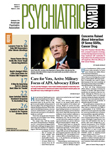The Food and Drug Administration has released a draft guidance that could allow pharmaceutical and medical-device manufacturers to distribute reprints of published articles that discuss unapproved indication. The document is posted on the agency's Web site for public comments.
Rep. Henry Waxman (D-Calif.), chair of the U.S. Congressional Oversight Committee, initially released the draft guidance last November on the Oversight Committee Web site after it was submitted to the committee. The guidance proposed that pharmaceutical and medical-device companies be allowed to disseminate reprints of articles that discuss indications not approved by the FDA, as long as the information is “truthful and nonmisleading.” In his letter to the FDA commissioner, Waxman said the draft guidance would “carve a large loophole in the law,” and he requested additional documents to justify the guidance.
While pharmaceutical companies are legally prohibited from promoting unapproved indications for their products, the FDA Modernization Act of 1997 allowed these companies an exemption for articles that have been published in peer-reviewed scientific journals.
The industry had been distributing journal articles including studies, reviews, and editorials discussing off-label use of products to physicians and other health care professionals until the law expired in 2006. The FDA currently has no policy in place. This draft guidance may extend the rule previously included in the 1997 law.
In a second letter to the FDA dated January 22, Waxman questioned the industry's influence on the origin of the agency's draft guidance, citing a meeting in April 2007 between FDA officials and industry representatives. At this meeting, according to Waxman's letter, industry representatives urged the FDA to issue guidance to clarify the legality of using journal articles for promoting off-label indications.
In the past decade, the FDA's legal authority to regulate off-label promotional practices has been challenged by the industry on First Amendment grounds despite the 1997 law. Since the late 1990s, the Washington Legal Foundation has brought a series of cases against the FDA's attempt to restrict off-label marketing. The court rulings on these cases did set limits on the agency's authority on the basis of freedom of speech, but the actual boundaries of the agency's power remain undefined.
Meanwhile, federal prosecutors have filed a number of criminal and civil cases against drug companies on charges of illegally promoting off-label claims. For example, in 2005 Eli Lilly pleaded guilty and paid $36 million in fines for promoting their drug raloxifene (Evista) for preventing breast cancer, which was not an approved indication at that time but had been described for that purpose in published studies. In 2007 Bristol-Myers Squibb agreed to pay hundreds of millions of dollars in fines to settle cases, brought by the Justice Department, that alleged it illegally promoted its atypical antipsychotic drug aripiprazole (Abilify) for unapproved indications.
The draft guidance outlines some general principles for the types of reprints, articles, and reference publications that are allowed distribution. For example, journals should “be published by an organization that has an editorial board that uses experts who have demonstrated expertise in the subject. .and who are independent. .to review and objectively select, reject, or provide comments about proposed articles....” The journal articles should be peer reviewed, not special supplements, and not funded by one or more of the manufacturers of the product cited in the article.
The FDA draft guidance is posted at<www.fda.gov/oc/op/goodreprint.html>.▪
